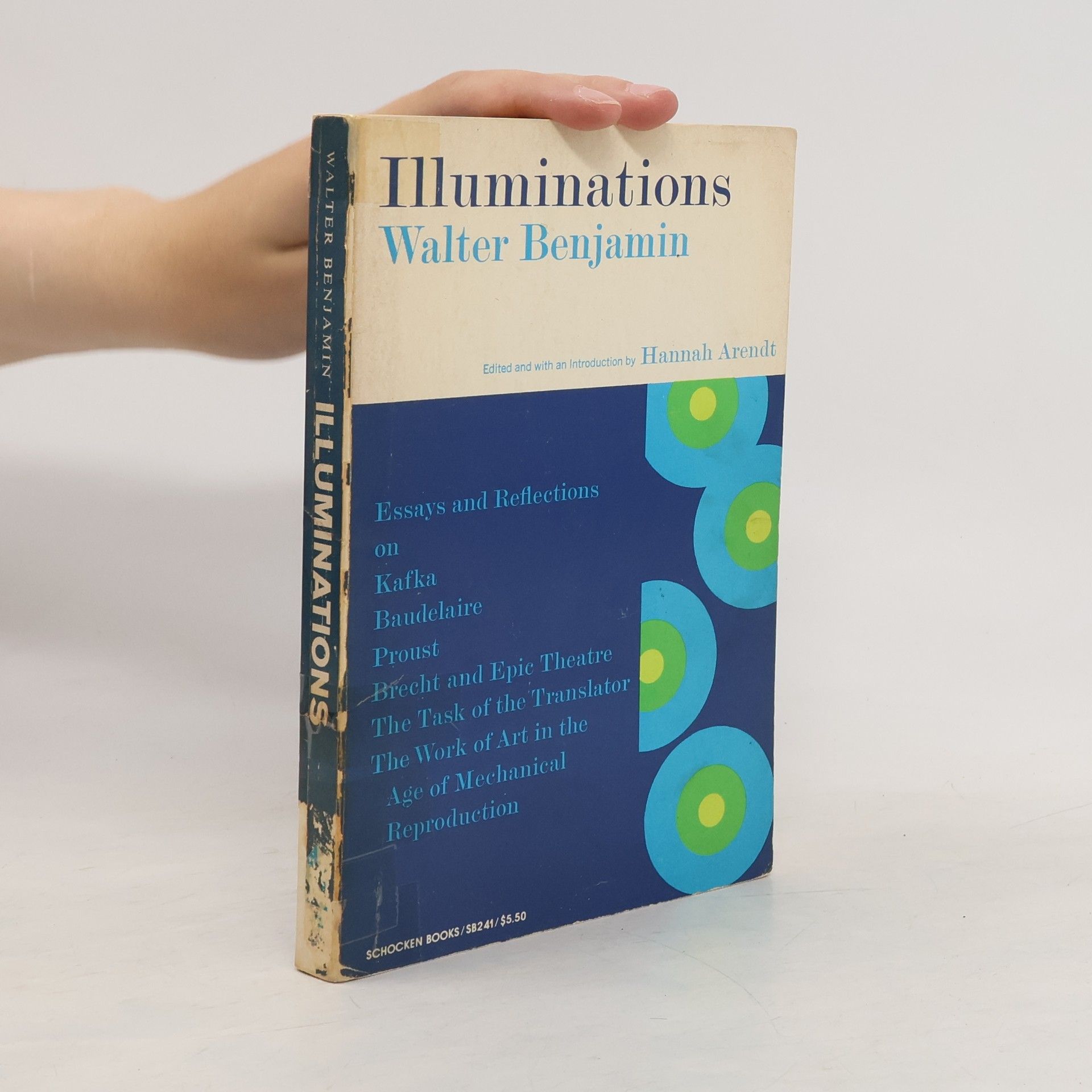Studies on contemporary art and culture by one of the most original, critical and analytical minds of this century. Illuminations includes Benjamin's views on Kafka, with whom he felt the closest personal affinity, his studies on Baudelaire and Proust (both of whom he translated), his essays on Leskov and on Brecht's Epic Theater. Also included are his penetrating study on "The Work of Art in the Age of Mechanical Reproduction," an illuminating discussion of translation as a literary mode, and his thesis on the philosophy of history. Hannah Arendt selected the essays for this volume and prefaces them with a substantial, admirably informed introduction that presents Benjamin's personality and intellectual development, as well as his work and his life in dark times. Reflections the companion volume to this book, is also available as a Schocken paperback.Unpacking My Library, 1931The Task of the Translator, 1913The Storyteller, 1936Franz Kafka, 1934Some Reflections on Kafka, 1938What Is Epic Theater?, 1939On Some Motifs in Baudelaire, 1939The Image of Proust, 1929The Work of Art in the Age of Mechanical Reproduction, 1936Theses on the Philosophy of History, written 1940, pub. 1950
Leon Wieseltier Libri
Leon Wieseltier è un distinto scrittore e critico americano, noto per le sue penetranti analisi della vita intellettuale e culturale. I suoi contributi letterari esplorano spesso le complessità dell'identità, la ricerca di significato e l'intersezione tra il secolare e lo spirituale. L'opera di Wieseltier invita i lettori a contemplare domande profonde attraverso una lente di rigore intellettuale e maestria letteraria.
